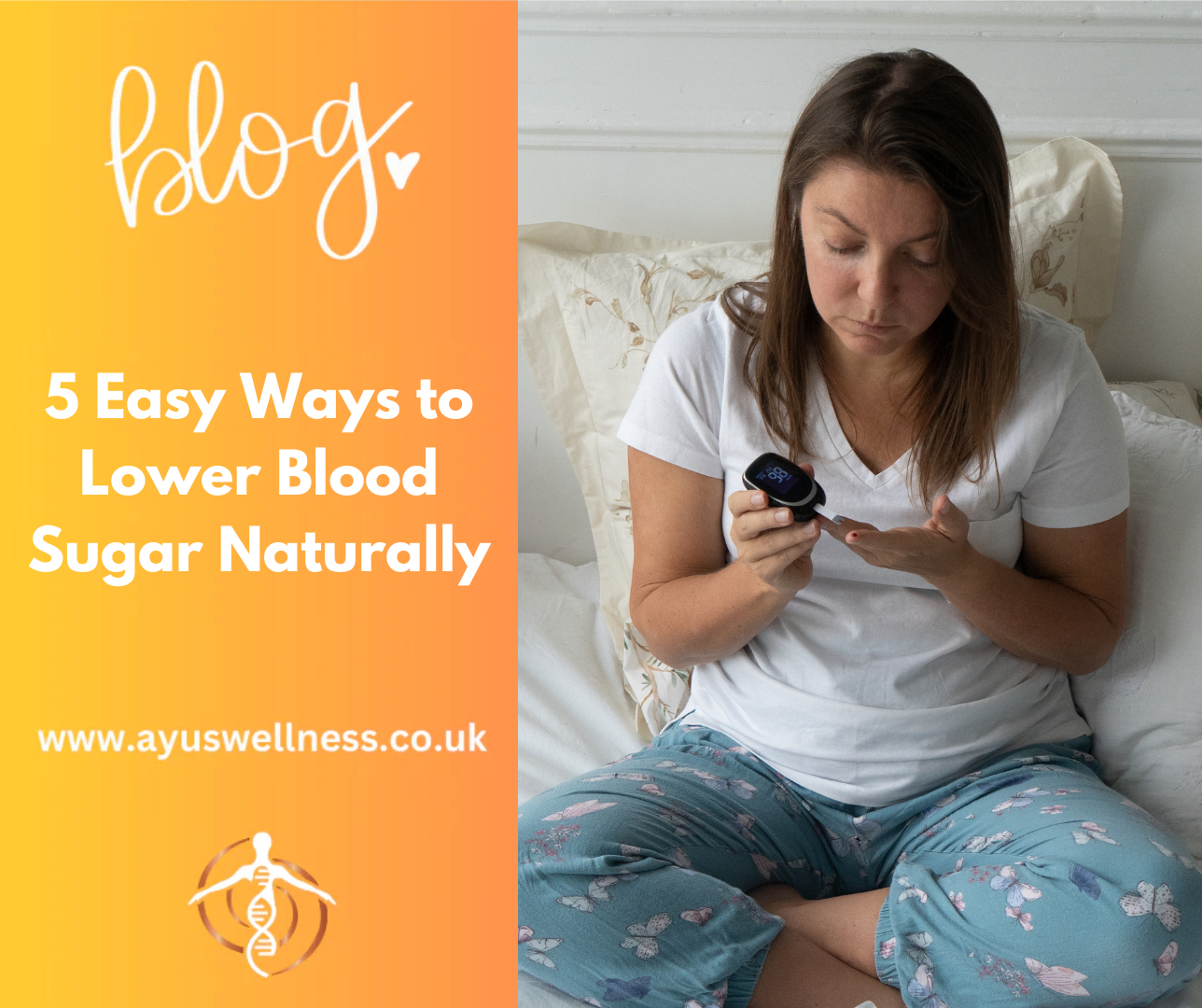
High blood sugar occurs when your body is unable to effectively transport sugar from the blood into the cells. If left unchecked, high blood sugar can lead to diabetes and more serious complications like heart disease or nerve damage. However, there are several natural ways to help bring those sugar levels back under control. In this post, we’ll walk through five easy strategies for naturally lowering your blood sugar. Let’s get started!
1. Control Your Carb Intake
The first and most important step to managing blood sugar is to control your carbohydrate intake. Carbohydrates are broken down into sugars in the body, and insulin moves those sugars into your muscle cells for energy. When you eat too many carbs or your body has trouble producing or responding to insulin, blood sugar levels rise.
Since the amount of carbs you eat directly affects your blood sugar, reducing carb intake is a proven way to help keep those levels in check. In fact, numerous studies have shown that low-carb diets can help reduce blood sugar levels and even prevent dangerous blood sugar spikes.
Research Insight:
One clinical trial involving 93 people with type 2 diabetes found that after 24 weeks, those consuming fewer than 50 grams of carbs per day had greater improvements in blood sugar control than those following a higher-carb diet. Additionally, 52% of the low-carb group reduced their diabetic medication by more than 20%, compared to only 21%in the high-carb group.
Actionable Tip:
- Aim to reduce your daily carb intake—especially refined carbs like white bread and sugary snacks. Focus on complex carbs, like whole grains, vegetables, and legumes, which digest more slowly and help maintain steady blood sugar levels.
2. Try Berberine
Berberine is a powerful supplement derived from a Chinese herb that’s been used in traditional medicine to treat diabetes for centuries. Recent research has shown that berberine can help lower blood sugar levels by enhancing insulin sensitivity and promoting the breakdown of carbohydrates for energy.
Some studies have even found that berberine can be as effective as certain blood sugar-lowering drugs, making it one of the most effective natural supplements for people with diabetes or pre-diabetes.
How to Use Berberine:
A common dosage recommendation is 1,500 milligrams per day, divided into three doses of 500 milligrams before meals. Just keep in mind that berberine can cause some side effects like diarrhea or abdominal pain, so it’s important to consult your doctor before trying this supplement, especially if you’re taking other medications.
3. Increase Your Fiber Intake
Fiber plays a crucial role in regulating blood sugar by slowing the digestion of carbohydrates and the absorption of sugar. As a result, fiber helps prevent rapid spikes in blood sugar after you eat. It also promotes feelings of fullness, which can help with weight management—a key factor in controlling diabetes and blood sugar.
There are two types of fiber:
- Insoluble fiber (found in whole grains and vegetables)
- Soluble fiber (found in fruits, legumes, and oats)
While both types are important, soluble fiber is particularly effective at lowering blood sugar levels.
Recommended Fiber Intake:
- Women: 25 grams of fiber per day
- Men: 38 grams of fiber per day
For most people, that means consuming around 14 grams of fiber for every 1,000 calories. However, most of us fall short of this target, so increasing your fiber intake could be a game-changer for your blood sugar control.
Best Fiber-Rich Foods:
- Vegetables (especially leafy greens and broccoli)
- Fruits (like apples, berries, and citrus)
- Legumes (lentils, beans, peas)
- Whole grains (oats, quinoa, brown rice)
4. Exercise Regularly
Regular exercise is one of the most effective ways to lower blood sugar because it helps you lose weight and improve insulin sensitivity. When you work out, your muscles use blood sugar for energy, which helps reduce blood sugar levels and keep them more stable. It also increases glucose transporters on the surface of your muscle cells which leads to greater glucose disposal.
Exercise also increases your insulin sensitivity, meaning that insulin can move sugar into your cells more effectively, which reduces blood sugar levels.
Best Forms of Exercise for Blood Sugar Control:
- Resistance training (like weightlifting)
- Brisk walking or running
- Cycling
- Dancing
- Hiking
- Swimming
A combination of aerobic exercise and strength training is ideal for maintaining blood sugar control. Aim for at least 30 minutes of exercise per day, or 150 minutes per week, as recommended by health organizations like the American Heart Association.
For an easy win, do some moderate aerobic exercise like brisk walking 30 minutes after you eat, to reduce the post-meal blood sugar spike.
5. Monitor Your Blood Sugar Levels
As the saying goes, what gets measured gets managed. If you have diabetes or pre-diabetes, monitoring your blood sugar levels regularly is key to understanding how your body reacts to different foods, exercises, and medications.
By tracking your blood sugar levels, you’ll know if you need to make adjustments to your meals, medications, or lifestyle. You can track trends and identify which habits keep your blood sugar stable and which lead to spikes. Many people find that measuring blood sugar daily and keeping a log helps them stay on top of their health goals.
Practical Tip:
- Measure your blood sugar levels in the morning and after meals to understand how your diet impacts your glucose levels. You can also check after exercise to see how it improves your numbers.
Benefits of Monitoring:
- Helps you identify foods that cause blood sugar spikes
- Allows you to adjust insulin or other medication if needed
- Provides real-time feedback on how well your management plan is working
Final Thoughts: Small Steps for Big Results
Lowering blood sugar naturally doesn't have to be overwhelming. Small, manageable changes to your diet and lifestyle can make a big difference. By controlling your carb intake, trying supplements like berberine, increasing fiber, exercising regularly, and monitoring your blood sugar levels, you can take charge of your health and reduce the risk of long-term complications from high blood sugar.
Remember, it’s always a good idea to consult your healthcare provider before making any significant changes, especially if you’re on medication. With the right plan and consistency, you can improve your blood sugar levels and feel better overall.


